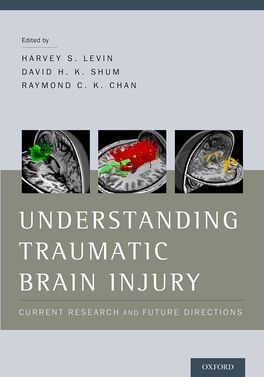Understanding Traumatic Brain Injury

Understanding Traumatic Brain Injury
|
ISBN: |
9780199737529 |
|
Binding: |
Hardback |
|
Published: |
10 Apr 2014 |
|
Availability: |
|
|
Series: |
$483.00 AUD
$552.99 NZD
Add To CartDescription
Contents
Authors
Harvey S. Levin is Professor and Director of Research in the Department of Physical Medicine and Rehabilitation at Baylor College of Medicine, Houston, Texas. He also serves as Director of the Center of Excellence for Traumatic Brain Injury (TBI) at the Michael E. De Bakey Veterans Affairs Medical Center. Dr. Levin was previously a member of the Neurosurgery faculty at the University of Texas Medical Branch, Galveston, and at the University of Maryland. He received his Ph.D. in psychology at the University of Iowa, where he studied neuropsychology with Dr. Arthur L. Benton and completed his postdoctoral fellowship. His research is concerned with closed head trauma in civilians and blast-related injury in veterans.
David H. K. Shum is Dean of Research in the Health Group at Griffith University, Australia. Professor Shum has more than 20 years' experience studying the effects of brain injury on cognition and behavior in adults and children. He has contributed to the assessment and treatment of cognitive impairments in individuals with damage to various parts of the brain by developing assessment techniques based on state-of-the-art models of brain functioning. He has published over 120 scientific papers in journals including Neuropsychologia, Journal of the International Neuropsychological Society, and Neuropsychological Rehabilitation, and has been awarded more than $5 million competitive funding by sources such as the Australian Research Council (ARC) and the National Health and Medical Research Council.
Raymond C. K. Chan is Professor of Neuropsychology and Applied Cognitive Neuroscience at the Institute of Psychology of the Chinese Academy of Sciences, and Deputy Director of the Key Laboratory of Mental Health. He holds an honorary professorship at the Department of Psychiatry, University of Hong Kong, and is the honorary research coordinator for the Institute of Mental Health, Hong Kong Castle Peak Hospital. He is Regional Representative for Asia for the International Neuropsychological Society. He has received funds from various funding agents and has published more than 180 scientific peer-reviewed articles and six book chapters dealing with schizophrenia research and traumatic brain injury. He currently serves on the editorial boards of Clinical Rehabilitation, Neuropsychological Rehabilitation, Cognitive Neuropsychiatry, as well as four local professional journals.
Reviews
"All professionals working in the field of TBI will want to purchase this book as it brings together the latest research in this complex area. Contributors from around the globe provide the latest information on historical, medical, cognitive, emotional, psychosocial and pharmacological issues in TBI. Also included are discussions of some areas rarely addressed such as blast injuries and TBI in elderly people. I particularly liked the consideration of outcome measures, a vitally important topic in TBI." -Professor Barbara A. Wilson, The Oliver Zangwill Centre for Rehabilitation, Ely, United Kingdom
"[R]esearch and study to treat TBI is extremely important, and this volume makes a significant contribution to that purpose. Each chapter supplies a voluminous amount of knowledge and insight being imparted by the author(s). In addition, charts, drawings, photos, and tables provide more information, contributing to the understanding of the subject matters being discussed. The lists of Reference materials at the end of the chapters provide further opportunities for you to consult other works and expand and deepen your understanding of any particular topic. This is a comprehensive, authoritative text." --Nano Khilnani, Biz India
"This is a high-quality, well-researched book that makes a unique contribution to the existing literature in this field. It nicely reviews fundamental concepts while at the same time pushes boundaries, exploring the latest on both the clinical and research fronts. I would highly recommend this book to anyone seeking to better understand traumatic brain injury, including clinicians, researchers, and healthcare policymakers." --DOODY'S